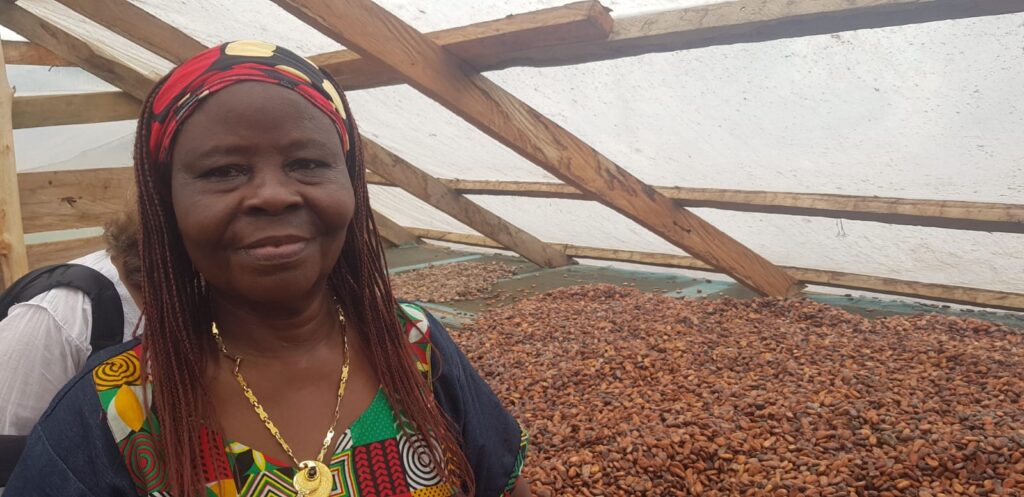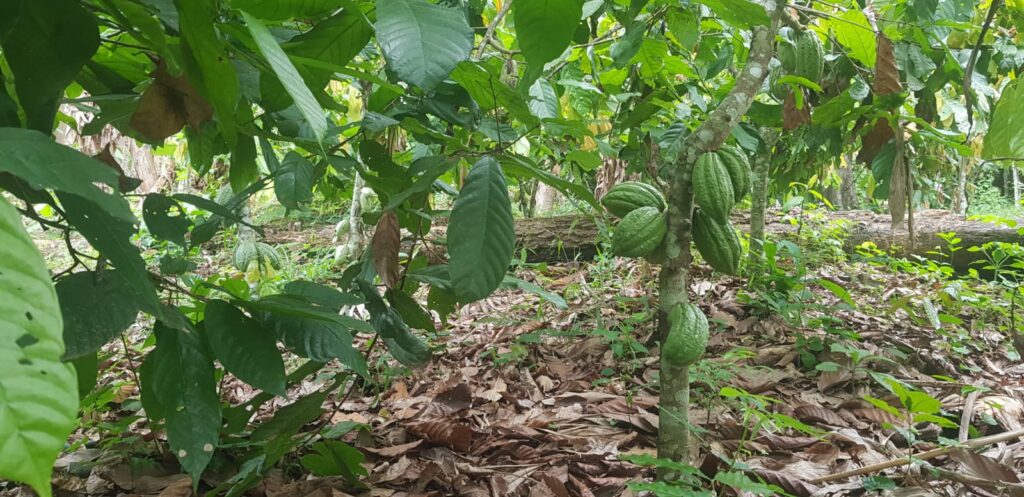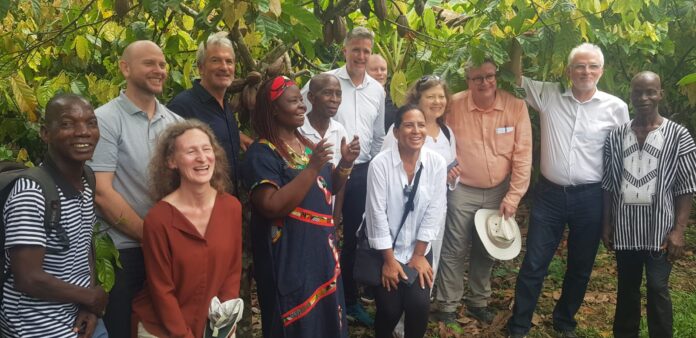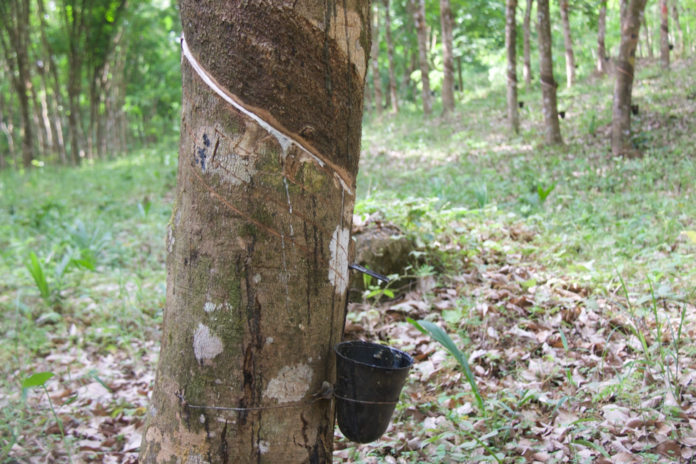Top: EU ambassadors pose for a picture with their entourage, a farmer of Monleh Enterprises at a farm in Saclepea, Nimba County. The DayLight/James Harding Giahyue
SACLEPEA, Nimba County – Farmers in Nimba are learning to produce high-quality cocoa beans to trade on markets of European Union (EU) countries.
About 2,500 farmers are now being trained in organic cocoa production, according to Monleh Enterprises, a cooperative based in Saclepea, Nimba County.
“We want to link with markets [in Europe],” said Rachel Mulbah, the CEO of Monleh Enterprises. She was speaking at the tour of the cooperative’s facilities by EU ambassadors and their entourage in Saclepea recently.
“Monleh also wants to export in order for the farmers to get good [a] price,” Mulbah said.
Organic cocoa refers to beans that meet sustainability standards required by the EU. With emphasis on the health of people, the soil and the environment, the organic cocoa are grown without the use of fertilizers and pesticides.
Liberia may not be a powerhouse of cocoa like Cote d’Ivoire and Ghana. However, Liberia has a unique variety of the crop, something market experts say is a rarity on the global market.
‘Queen of Liberian Cocoa Beans’
The farmers of Monleh Enterprises understand their niche and are getting there. It finished number one in a trade fair in Cote d’Ivoire, according to Mulbah. It exported 12 metric tons of premium cocoa to Italy earlier this year, which had rejected its consignment last year, she said. Premium cocoa is of the best quality, too, but it does not have a certification program like organic cocoa.

Monleh farmers are getting their organic cocoa training from the NGO Grow Liberia as part of a US$6 million project funded by Sweden. They learn good agriculture practices that avoid deforestation and the use of harmful chemicals and bad harvesting methods.
The farmers also learn to make their productions transparent and traceable, a pillar of the certified cocoa scheme of the EU, the world’s largest cocoa market.
Mulbah urged the EU ambassadors to provide more support to the group to achieve its organic paper.
“We want to get modern equipment for farming, which, of course, will reduce child labor in Liberia,” Mulbah said, handling the delegation a memo containing the requests.
“Monleh wants to develop its own nursery. Monleh wants to see farmers’ lives improved,” Mulbah added. Urban Sjöström, the Ambassador of Sweden, called her “the Queen of Liberian Cocoa Beans.”
Dr. Charles Sackey, Grow Liberia’s team leader, said the farmers were already producing organic cocoa, just that they do not have the certificate.
“Working with the farmers in Liberia, we have seen that there is little use of chemicals. So, the farms are, by default, organic,” Sackey said as EU ambassadors viewed a solar drier for cocoa beans, a suspended platform with transparent plastic roof.
“Once you sell on the European market, you want to prove that it is organic, and not by default,” Sackey added.
As it stands, Liberia exported US$38 million cocoa in 2021, the 21st largest cocoa-exporting country worldwide, according to the World Bank. The Netherlands is the biggest importer of Liberian cocoa, with US$19.2 million in 2021.
The head of the EU Delegation to Liberia Laurent Delahousse urged the farmers to work harder to maintain high standards.
I want to reassure you that your approach is our approach… We are addressing support problems to agriculture as supposed to food systems, and cocoa makes [a] wonderful food,” Delahousse said.
“Liberia will not compete on big volumes of low-quality cocoa. Liberia can only compete on smaller volume of very high-quality cocoa.
“You have a variety in this country that is unique, which gets a premium on the world market but you have to build your value chain from production to …in France, Switzerland, Belgium, Sweden, Ireland and elsewhere,” Delahousse added.
The other envoys on the tour include Jacob Haselhuber of Germany, Michael Roux of France, and Simon McCormack, the Second Secretary at the Embassy of Ireland.



